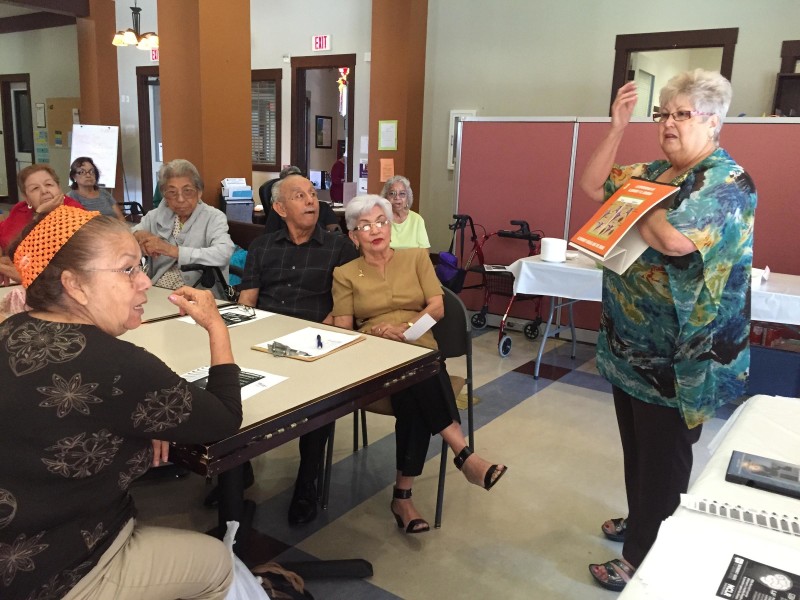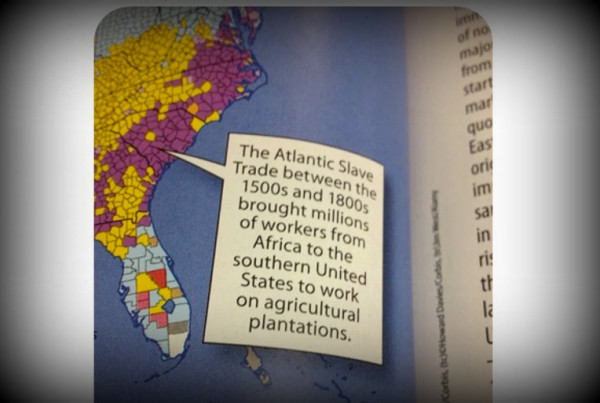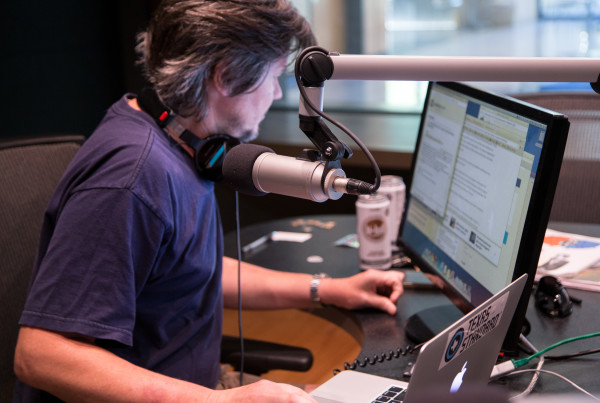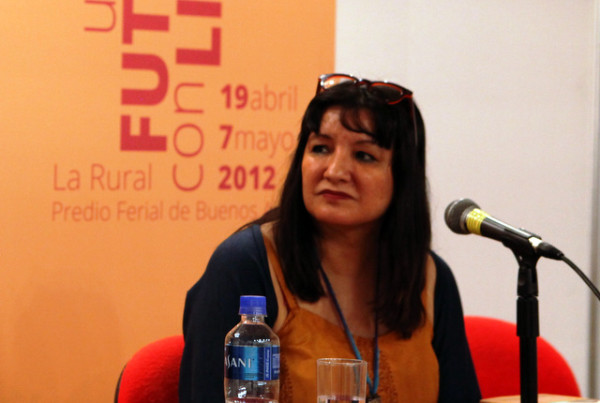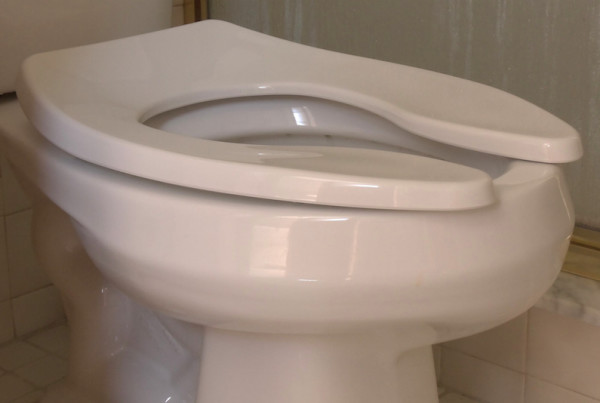This story originally appeared on Texas Public Radio.
The residents of Palacio Del Sol are mostly Latino, in a mostly Latino Bexar County, and they all seem to know Ms. Estella Cadena.
Palacio has been Estella’s home since she retired 8 years ago. Her health care experience before that?
“Nothing, nothing,” Cadena says. “I didn’t know nothing but retail.”
Now, she volunteers as a promotora de salud – a health liaison in the Latino community.
She underwent some training with the National Council of La Raza, and found the role was a great fit. Promotoras aren’t doctors, they’re trusted members of the community who educate, advocate, and connect their friends and neighbors to resources they need.
Today, Estella is co-leading a class about Alzheimer’s and dementia for a few dozen seniors.
Maria Cano is the activities coordinator for the housing development, and a promotora. She reads the materials in Spanish and English.
“Today we’re going to talk about Alzheimers,” she says. “The signs and symptoms of Alzheimers, and the risk factors of Alzheimers. And how to maintain better communication between the patient and family members, and the doctor, and what questions to ask.”
Maria Cano also helps the seniors with things like renewing their Medicare paperwork, especially as more and more move online.
At the meeting, Estella encourages everyone to go to the doctor regularly, one resident says she does, and her last test results were in her favor.
“That’s good. But see now you know. You have to have that test done, and that way you can be relieved from that,” says Cadena. “But if you lose things, that’s normal, don’t get scared. Because we all forget things.”
Resident Maria Peña’s husband does suffer from Alzheimers, and says hearing about one of her neighbor’s similar experiences has made a big difference.
“She gave me courage to talk,” says Peña. “We’re very private, he doesn’t admit it that he’s getting sick.”
Estella says it can be challenging for these folks to seek information from other health care professionals. She says “denial is number one, especially if they’re older. They don’t want you as a young person telling them what’s wrong with them, they don’t even wanna go to doctor.”
These promotoras received their training and educational materials from The National Council of La Raza, a Hispanic advocacy group. Manuela McDonough helps implement and evaluate similar programs across the country.
“It’s effective for the Latino communities specifically because it helps reach Latinos who are disenfranchised and maybe not connected to the formal health care system,” says McDonough. While she says there’re decade’s worth of evidence showing the efficacy of promotoras, “the problem is that there isn’t a sustainable source of funding for the work that promotoras and community health workers do.
McDonough says certification could lead to recognition which could lead to money. And while some states, including Texas, have their own certifications, La Raza is fighting for national standards, and federal funding for promotoras. She says there’s still a long road ahead of them on that front.
At Palacio Del Sol, Estella Cadena takes her role very seriously, driving neighbors to the store, or making sure they don’t eat too many sweets, “and I’ve taught them tell your neighbor,” she says. “Show them who to call in case of emergency, put them on the refrigerator.”
Those simple steps are especially important for the many diabetics here who had gone untreated before they learned how. Cadena says it’s important for their families to do the same – in Bexar county 16 percent of Hispanics are diagnosed with diabetes, versus 8 percent of the white population.
While Cadena enjoys the work, she says it can be very hard. Sometimes residents get mad when she’s just honest, and makes them face their own health issues.
“So, oh my god, they call me every name in the book,” says Cadena, “but I go home and give myself a good cry and I’m OK.”
So why does she do it?
“I get very emotional when I see people that don’t have no children or anything. I took care of my parents,” says Cadena. “It’s so depressing to see somebody that doesn’t have that help. This is why I want to do that.”
Estella Cadena says she’ll keep working as a promotora as long as she can. And while she doesn’t have the numbers to show these efforts are working, she says emergency ambulances pulling up to Palacio Del Sol is a much rarer occurrence these days.


